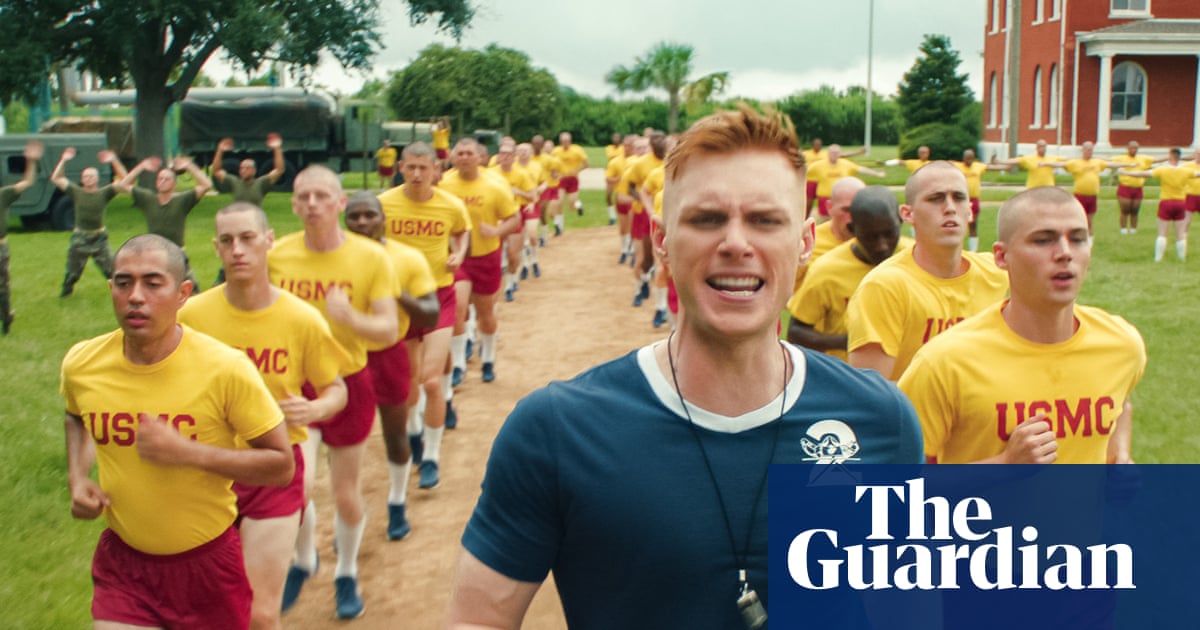Mark Waugh or Steve? Greg or Ian Chappell? Will it be England’s sepia-tinted Sydney F Barnes, the grumpy and moustachioed Jimmy Anderson of his day, or Australia’s Sidney G Barnes, an eccentric batter in the 1948 touring Invincibles?
Does Ivo Bligh’s place in Ashes folklore merit inclusion even if his 10.33 batting average wouldn’t get him in a village XI? Where do you place the legend of WG Grace in an all-time reckoning? And how do you weigh up Don Bradman’s astonishing statistics against the era in which he batted?
These are just some of the questions our panel of 51 judges will have pondered when we asked them to choose the greatest players in the history of the men’s Ashes.
Ashley Giles, Steven Finn, Simon Katich, Damien Fleming and the Guardian’s own columnist Mark Ramprakash led a judging panel knocking into shape a list of the best 100 players from the 853 who have competed in 143 years of men’s Tests between England and Australia.
Our panel also included Tom Holland, one half of The Rest Is History podcast, the former England selector Geoff Miller, the commentator Alison Mitchell, and celebrated cricket writers such as Vic Marks, Matthew Engel and Gideon Haigh.
Together they formed a heady mix of players, coaches, reporters, editors, authors, broadcasters, commentators, columnists, administrators, historians, academics and podcasters from both hemispheres, giving us a wide perspective on cricket’s foremost rivalry.
We sent our judges a long list of 150 names to help them choose, although they were free to order off-menu, and told them to pick their best 50 and rank them in order. When all 2,550 votes had been cast, we added them together to produce our Top 100 list.
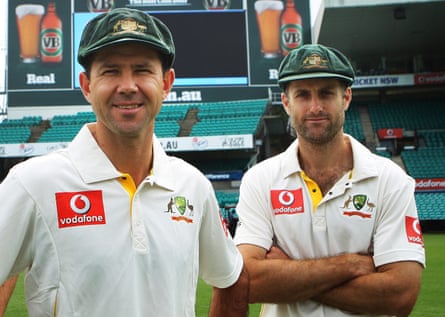
We set three simple rules – explained below – and left each judge to work out for themselves how they wanted to compile their list. It was a simple yet fiendish task. None of our judges said they found it easy; most said how tough it had been, while one described it as an “almost pleasurable form of agony and torture”.
Over the next four days we will publish the fruits of their labour. On Tuesday we reveal Nos 100-71, on Wednesday we count down to No 41 and on Thursday to No 11. On Friday we will reveal the top 10 to complete our list, publish the full voting results and announce our select XIs.
This is, of course, only a snapshot in time based on the views of 51 individuals. We recognise that there are an infinite number of Ashes Top 100 lists to be created. But this one is ours, we are grateful to the judges for their time, and we hope you enjoy the results.
Voting rules
We set our judges three rules:
1) Choose your 50 greatest players in men’s Ashes history, ranked in order from No 1 (the best) to No 50.
2) Include at least 15 players from each country.
3) Choose at least five players from each era*.
*We established five “eras” to combat recency bias: players who made their debut before the first world war; in the interwar years; from the second world war to 1974; from 1975 to 1999; and from 2000 onwards.
We also invited our judges to consider every England-Australia men’s Test encounter, not just those officially labelled as the Ashes.
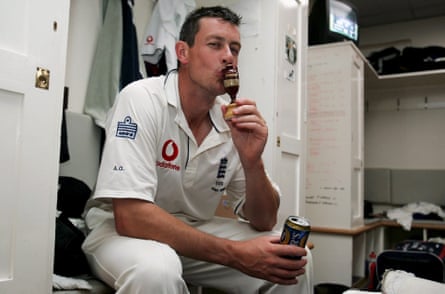
How the voting works
The No 1 choice of each judge was awarded 50 points, No 2 given 49pts, down to 1pt for their No 50 choice. All the votes were added together to give a final score. If players were level on points in the scoring, the number of individual votes cast was used as a tie-breaker. If they were still level the decider was the highest-ranked individual vote. The voting breakdown will be published when the full list has been revealed.
Voting disclosure
We are very grateful to our judges for taking part. None have been paid for their involvement in this project.
To allow our judges the freedom to express their opinions without fear or favour, individual voting records will be anonymised in the full breakdown of scores.
Voters are identified only by a number chosen at random. The judges’ numbers bear no relation to the alphabetical list of names presented below.
List of judges
Judges are listed in alphabetical order
Tanya Aldred Guardian cricket journalist
Paul Allott Former England player
Beth Barrett-Wild ECB director of the women’s professional game
Robert Booth Guardian journalist
Andy Bull Guardian cricket journalist
Simon Burnton Guardian cricket journalist
Adam Collins Guardian Australia cricket journalist and broadcaster
Russell Cunningham Guardian sport production editor
James Dart Guardian sports editor (digital)
Tom Davies Guardian cricket journalist
Matthew Engel Former Guardian cricket correspondent; former editor of Wisden Cricketers’ Almanack
Paul Farbrace Sussex coach and former England assistant coach; former player
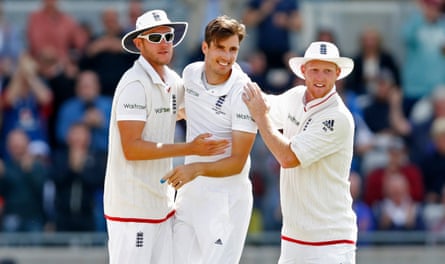
Steven Finn Former England player
Damien Fleming Commentator and former Australia player
Daniel Gallan Guardian cricket journalist
Ashley Giles Former England player; former England white ball coach; a Wisden cricketer of the year 2005
Gideon Haigh Celebrated cricket writer and author of more than 50 books
Matthew Hancock Guardian sports editor (print)
Taha Hashim Guardian cricket journalist
Ian Higgins One half of Australia’s The Grade Cricketer podcast
Tom Holland Historian, author and podcaster. One half of The Rest Is History podcast
Jon Hotten English author & journalist
Jonathan Howcroft Australian sportswriter and commentator
Mike Hytner Guardian Australia sports editor
Emma John Guardian cricket journalist
Miles Jupp English actor and comedian
Simon Katich Australian cricket coach and former Australia player
Jo Khan Guardian Australia deputy sports editor
Geoff Lemon Guardian Australia cricket writer and broadcaster
Jonathan Liew Guardian cricket journalist
Vic Marks Former England player and former Guardian cricket correspondent
Ali Martin Guardian cricket correspondent
Megan Maurice Australian cricket writer
Geoff Miller Former England player and a selector for 13 years
Alison Mitchell English-Australian cricket commentator and sports broadcaster
Hugh Morris Former England player; cricket administrator
Stephen Moss Feature writer and author; former literary editor of the Guardian
Martin Pegan Guardian Australia assistant sports editor
Sam Perry One half of Australia’s The Grade Cricketer podcast
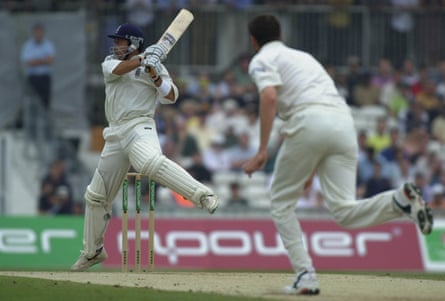
Mark Ramprakash Coach and former England player; Guardian cricket columnist; a Wisden cricketer of the year 2007
Alan Richardson Worcestershire head coach; a Wisden cricketer of the year 2012
Barney Ronay Guardian chief sports writer
Christian Ryan Author of Feeling is the Thing that Happens in 1000th of a Second
Rob Smyth Guardian cricket journalist
Jack Snape Guardian Australia sports reporter
Bharat Sundaresan Australia-based cricket journalist and radio commentator
Michael Taylor Historian of the British empire; former first-class player
Sharda Ugra Sports columnist for the Hindustan Times
James Wallace Guardian cricket journalist
Will Woodward Guardian head of sport
Andy Zaltzman Test Match Special statistician and chair of The News Quiz

 2 months ago
63
2 months ago
63















































